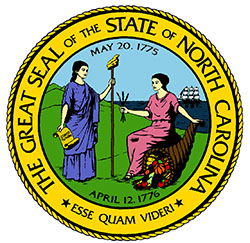
In a recent op ed in the Charlotte Observer, Christopher Mitchell delves into why North Carolina ranks last in per capita subscribers to a broadband connection. The state, through its legislature, is held hostage by large providers such as Time Warner, CenturyLink, and AT&T. David Hoyle, a retired Senator who admitted pushing bills written by Time Warner Cable, signed his name to an op-ed arguing cities should not have the authority to make their own decisions in this regard.
Readers know that Time Warner and CenturyLink (formerly EMBARQ) targeted Wilson's Greenlight, leading to restrictive barriers for any similar initiatives. In his opinion piece, Chris delves into how those providers create an environment that kills opportunity for the people of North Carolina and how local publicly owned networks could restore those opportunities.
The Observer edited the original piece for length, but we provide the full version:
If you think you’re being ripped off by the cable and telephone companies, you aren’t alone. These companies rank at the top of the most hated corporations in America, year after year. Given a recent report from the Federal Communications Commission, North Carolinians have more reasons to be angry than most Americans.
Released last month, the FCC’s annual Internet Access Services [pdf] report shows North Carolina last among U.S. states in percentage of households subscribing to high-speed Internet connections as defined in the National Broadband Plan.

This news comes on the heels of State Representative Brawley announcing that House Speaker Tillis told him he had a “business relationship” with Time Warner Cable after Brawley introduced legislation opposed by the cable giant. But one alleged relationship does not explain how North Carolina fell to last place in that FCC ranking.
The deeper problem is power Time Warner Cable, AT&T, and CenturyLink have at the General Assembly. These companies successfully lobbied for two flagship bills that increased prices, limited competition, and generally hurt consumers and businesses throughout the state.
Back in 2006, the General Assembly bowed to industry pressure and passed a bill for statewide video franchising. Local governments lost their right to oversee companies offering television services or require them to build out to everyone. North Carolina was promised a new age of cable competition and lower prices.
Prices continued to rise – a 2009 study from the University of Minnesota actually noted that North Carolina’s prices were among the fastest rising in the nation. But even now, most families still have the same limited options for cable and Internet service.
Fed up and recognizing that the cable and phone giants would never allow competition to prosper, the City of Wilson took matters into its own hands by building its own next-generation fiber optic network. Completed by 2009, the network has been a success and Wilson is the first community in North Carolina to have universal access to a gigabit – about 100x faster than cable speeds.
Time Warner Cable, AT&T, and CenturyLink lobbied against Wilson from the start and engaged in a multi-year effort in Raleigh to revoke the authority of any local government in the state to build a similar network. For five years, they worked with the now infamous ALEC, the American Legislative Exchange Council, to push bills that would effectively ban local governments from building networks.
In 2011, the new Speaker of the House, Representative Tillis, ushered just such a bill through the House after receiving $37,000 from the telecom companies in the previous election cycle. Though he ran unopposed, he received significantly more from that industry than any other candidate, according to a report from the National Institute for Money in State Politics called “Dialing up the Dollars.”
Strictly speaking, the bill was not technically a ban. We call these “leprechaun-unicorn bills” because a local government effectively has to find a leprechaun riding a unicorn to meet the standard necessary to build a network.
What it really did was revoke local judgment for state authority – something Republicans regularly decry in other circumstances. Opponents of the bill consistently argued that these decisions should be made at the local level, by those who will live with the consequences for better or for worse.
These two bills are essential to understanding why North Carolina has such poor access to the Internet and ever-increasing cable prices. Consumer protections typically come from the market (competition) or government (regulation). But these big companies are too powerful for other private companies to compete against and local governments have no regulatory power to protect consumers. Big cable and phone companies have little fear of competition and little motivation to invest in regionally or globally competitive upgrades.
The Institute for Local Self-Reliance is tracking over 400 local governments across the nation that have invested in telecommunications networks and very few have regretted it. Just outside North Carolina, the cities of Bristol, Chattanooga, Danville, and a few others offer some of the fastest network connections at the lowest prices in the entire United States. If even 10 percent of these networks actually were failures, cable lobbyists wouldn’t have to spend millions lobbying states to revoke local authority to build them.
The General Assembly should return authority to local communities and trust them to make decisions. But as long as big cable and phone companies maintain their “business relationship” with elected officials, you can expect to see more decisions made in Raleigh rather than at the local level.
For the whole story on the war against Greenlight, you can download a copy of our case study, The Empire Lobbyies Back: How National Cable and DSL Companies Banned The Competition in North Carolina.




